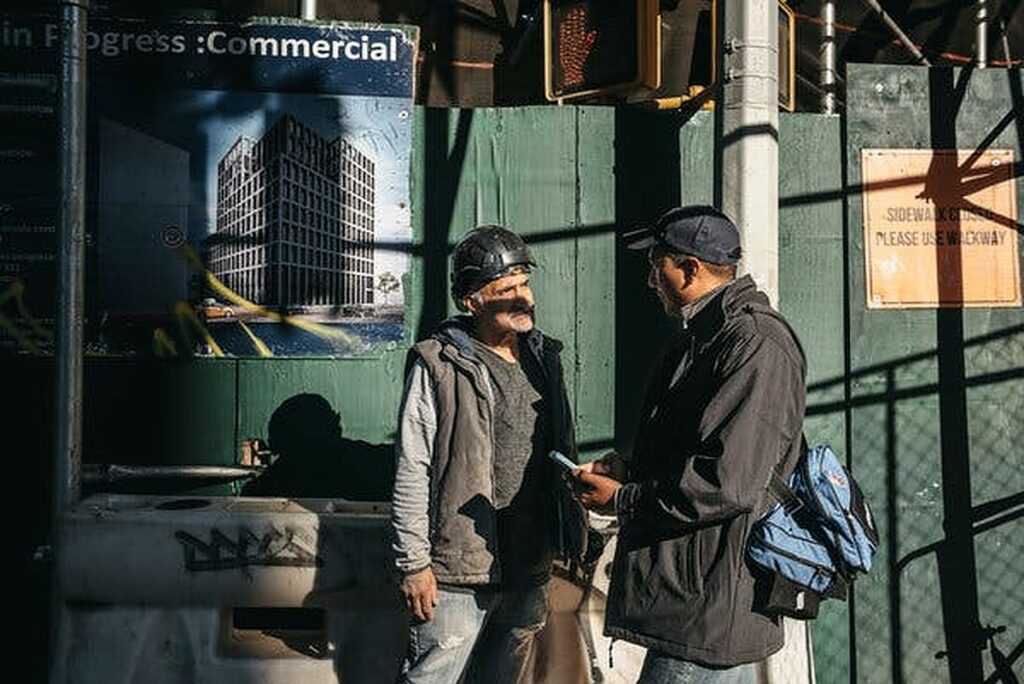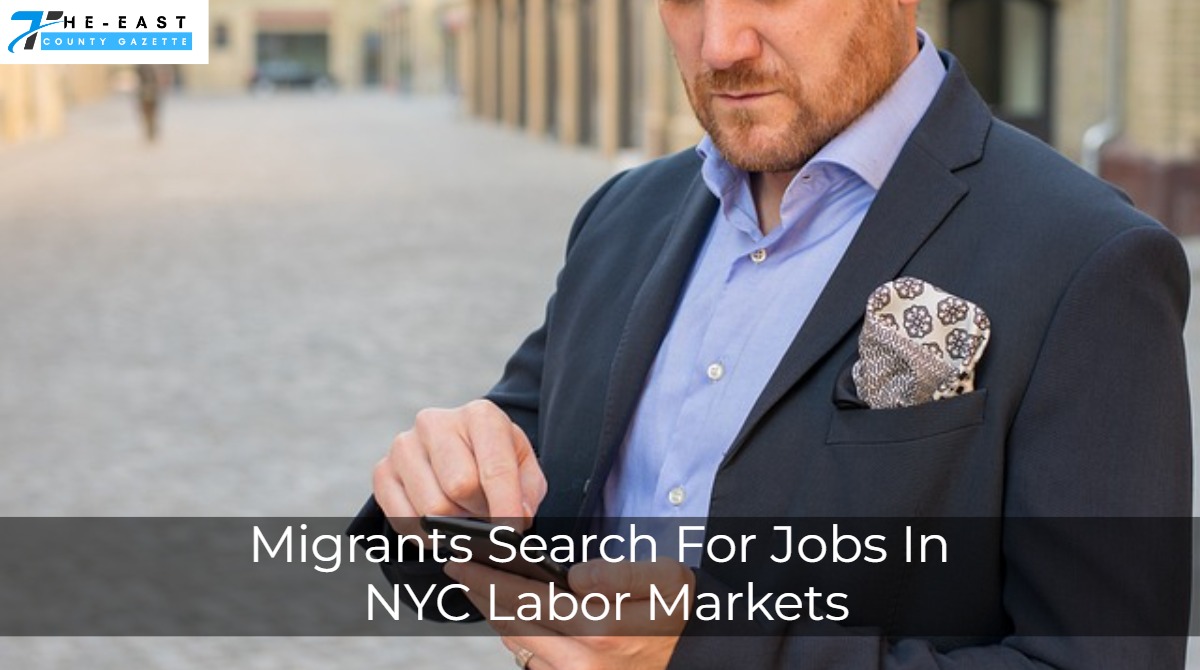On a recent morning in Manhattan, Alberto Azuna stood at the corner of 125th Street and Third Avenue and adjusted his baseball cap. He writhed inside his constricting winter coat before straightening up. He said, “OK, let’s go down this way.”
Minutes later, he emerged, shaking his head, from El Barrista Cafe, a hip-looking establishment with a sign that read: “Today has been canceled.” He explained, “I don’t know English, and they didn’t speak Spanish.”

He came into contact with a hard-hatted man moving construction supplies on the next street. He yelled in Spanish, “Excuse me, sir.” Mr. Azuna claimed that he was seeking employment after just arriving from Venezuela. José Santos, the worker, nodded sympathetically before shaking his head.
Even for me, a Boricua who was born and raised here, he claimed, “it’s hard to get a job sometimes.” “I’ll let you know anything I know of.” Sighing, Mr. Azuna repositioned his headgear.
Mr. Azuna, 38, has been circling Manhattan on foot since moving to New York City a little less than two weeks ago, knocking on doors of numerous businesses like a canvasser and pleading for a job, any job. He used to be a radio host back home and gets up every day at six in the morning to ride the bus from Randalls Island, where he has been residing at a shelter for homeless men, to Manhattan.
He is one of the almost 22,000 migrants who have entered New York City since April, many of them are Venezuelans who are escaping the political and economic unrest in their native nation. New York City’s Mayor Eric Adams announced a state of emergency last month as the city’s shelters began to overflow from the flood of migrants. To accommodate everyone, the city built a tent camp close to the shelter where Mr. Azuna is residing on Randalls Island.
Most people wanted work. However, it might take some time before the most recent refugees can legally do so because of a rule that enables them to start working six months after applying for asylum. For many, the process will take a while, and the opportunity probably won’t last forever.
The backlog of asylum claims was already putting a burden on the courts; Mr. Azuna’s first meeting with immigration officials was in July 2025. And for the majority of migrants, obtaining asylum is unlikely because fleeing poverty is not a qualifying circumstance.

Although there is employment in the city, many positions demand a work visa. Therefore, Mr. Azuna and thousands of others like him are likely to join the underground economy and the more than 500,000 undocumented workers who already reside in New York City due to their limited financial means and small possibilities of being awarded asylum.
At Sandy Restaurant, a Dominican diner, Mr. Azuna made his third effort of the morning, telling the woman behind the counter, “I’ll do anything – wash dishes, cook. I can even operate a cement truck, see? She gave a headshake. “We’re full. Completely full,” she declared.
‘Hundreds,’ according to Sandy Restaurant owner Leon Ramirez, have been knocking on his door as migrants from Latin America. I’ve never noticed so many. More than ten Venezuelans every day, including young children and 16-year-olds, are desperately seeking employment. However, we have everything we require, and the price is too high.
After weeks of perilous travel through Central America, including through the dense, swampy woods of the Darién Gap in Panama, Mr. Azuna finally arrived in Manhattan. Mr. Azuna remembered witnessing dead people and kids who had been abandoned by parents who had passed away from tiredness or wounds.
He traveled with little belongings, as did many others, and lost more as he went. The only thing Mr. Azuna has left is a plastic folder that he always carries around with him. It contains his passport, 50 Mexican pesos, or about $3, some pills for ulcers and indigestion, a small book with passages from the New Testament and the Psalms, and a picture of his wife and two daughters, one of whom was born only five months ago.
The game of survival is still being played in New York, albeit in a new way. In general, undocumented workers are more susceptible to mistreatment at the hands of dishonest employers, such as intermediaries in the construction industry, some of whom are already paying workers half the $15 minimum wage mandated by the city. But in contrast to other ethnic groups, many of which have developed social networks and communities in the city, many Venezuelans have few family members or connections to turn to for guidance or financial support.
The city built up a shelter with facilities for sports and video games and gave refugees Electronic Benefits Transfer cards to buy food, showing a level of solidarity for this wave of migrants that may be unheard of. There are still some obstacles. Some of the E.B.T. cards have been faulty; Mr. Azuna realized he had no money on them and had to visit a Brooklyn office to resolve the issue. He was dependent on the compassion of strangers and forgiving metro staff members to allow him through because he lacked the money to purchase a subway card. “They say go ahead when I tell you I’ve just arrived from Venezuela,” he stated.
Then there is a bureaucratic scramble to obtain any form of identity to show potential employers. Workers who want to work in construction must obtain an Occupational Safety and Health Administration certificate, which can cost up to $400 and requires 40 hours of basic safety training.

